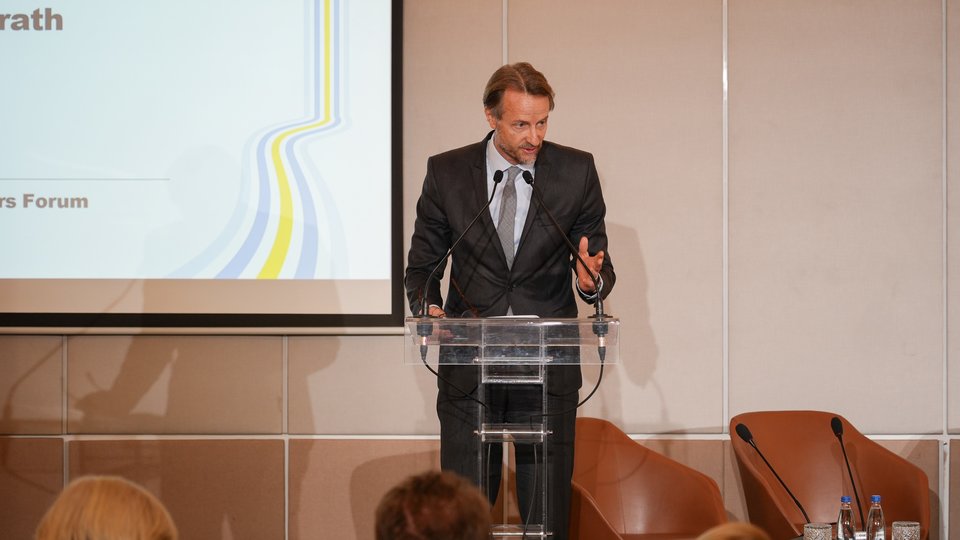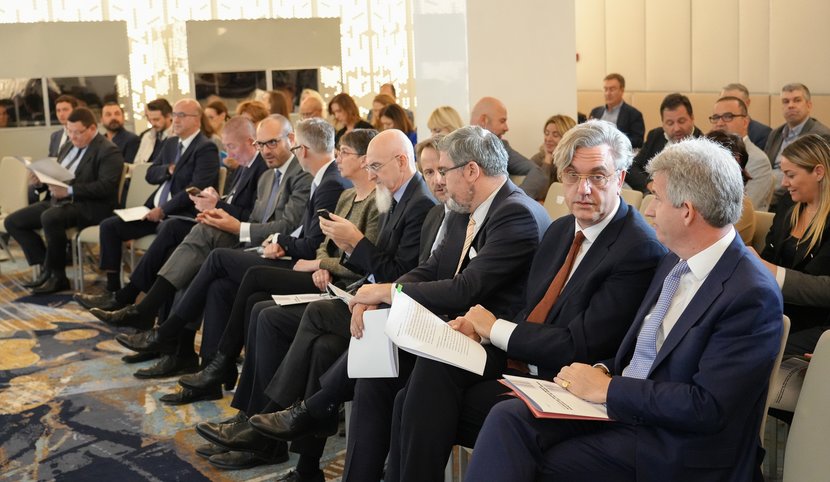Stronger regional cooperation and concrete steps towards integrating economies into the EU Single Market are key to accelerating economic progress in the Western Balkans—this was the central message from participants at the “Western Balkans Chamber and Investment Forum within the Berlin Process.”
The forum brought together business leaders, representatives of Western Balkan chambers of commerce, diplomats, and international organizations, highlighting the importance of joint activities, political will, and reforms in achieving the goals of the Berlin Process and bringing the region closer to the European Union.
Addressing the participants, EU Ambassador to Serbia Andreas von Beckerath emphasized that last year’s Berlin Process summit demonstrated that regional cooperation delivers results.
“A new Action Plan for the Common Regional Market has been aligned, a mobility agreement signed, and decision-making within CEFTA has been unblocked. Ahead of the London Summit, our shared goal is clear: to build on this positive momentum, advance necessary reforms, and seize the opportunities offered by the Growth Plan. This will bring the Western Balkans closer to the EU—and closer to each other. The EU remains committed to the enlargement process in the Western Balkans, which it sees as a key strategic priority”, said the Ambassador.

EU Ambassador to Serbia Andreas von Beckerath / Photo: Serbian Chamber of Commerce
Serbian Minister for European Integration, Nemanja Starović, stated that EU membership is not just a formal goal, but a path toward building a modern, competitive, and well-organized society.
“All initiatives leading in that direction—especially the Berlin Process—are of essential importance as they strengthen cooperation with EU and regional partners, while also delivering tangible economic benefits. Everything we do makes our region more connected, our companies more competitive, and brings us all closer to the EU Single Market”, said Starović.
He noted that intra-CEFTA trade has increased from €2.5 to €6.5 billion, and that Serbia’s exports have surpassed €3 billion—a direct result of regional cooperation. According to the Minister, the new Action Plan for the Common Regional Market will cover new areas such as finance, investment, and trade, bringing concrete benefits to businesses across the region.
UK Ambassador to Serbia, Edward Ferguson, also spoke at the forum, emphasizing that the United Kingdom has a clear objective for this year’s Berlin Process—to support the six Western Balkan countries in strengthening cooperation both with Europe and among themselves.
“This is the message we’re taking through the series of ministerial meetings starting this week with the Western Balkans Foreign Ministers’ Summit in Northern Ireland, all the way to the Leaders’ Summit in London on October 22. Today’s discussions between regional chambers focus on concrete sectors and the benefits of deeper integration with the Common Regional Market and the EU Single Market. Our shared, ultimate goal is growth—fewer administrative hurdles, faster procedures, and greater security for cross-border businesses”, Ferguson stated.
President of the Serbian Chamber of Commerce, Marko Čadež, highlighted the need for Serbian businesses to communicate with the entire Western Balkans business community.
“We’ve been working together for years, but we need a new approach—from both regional governments and Brussels”, Čadež stated, proposing the establishment of a regional implementation group, involving key ministries from each Western Balkan economy.
He reminded participants that studies show that in sectors such as metallurgy, the automotive industry, agriculture, food production, tourism, textiles, and furniture, significant results can be achieved within one to two years—facilitating integration into the European Single Market.
During the panel discussions, the regional business community agreed that improving business opportunities through the Common Regional Market and integration into the EU Single Market is a crucial step toward boosting competitiveness and improving market access.
Companies from various sectors emphasized the substantial economic benefits of integration but also warned that existing obstacles, unaligned procedures, and reform challenges significantly impact efficiency and competitiveness on the global market.
The dialogue among business leaders clearly underscored the need for further steps to remove bureaucratic barriers and improve conditions for doing business in the region.
The event in Belgrade was organized by the Serbian Chamber of Commerce and the WB6 Chamber Investment Forum, in partnership with the British Embassy in Belgrade.




